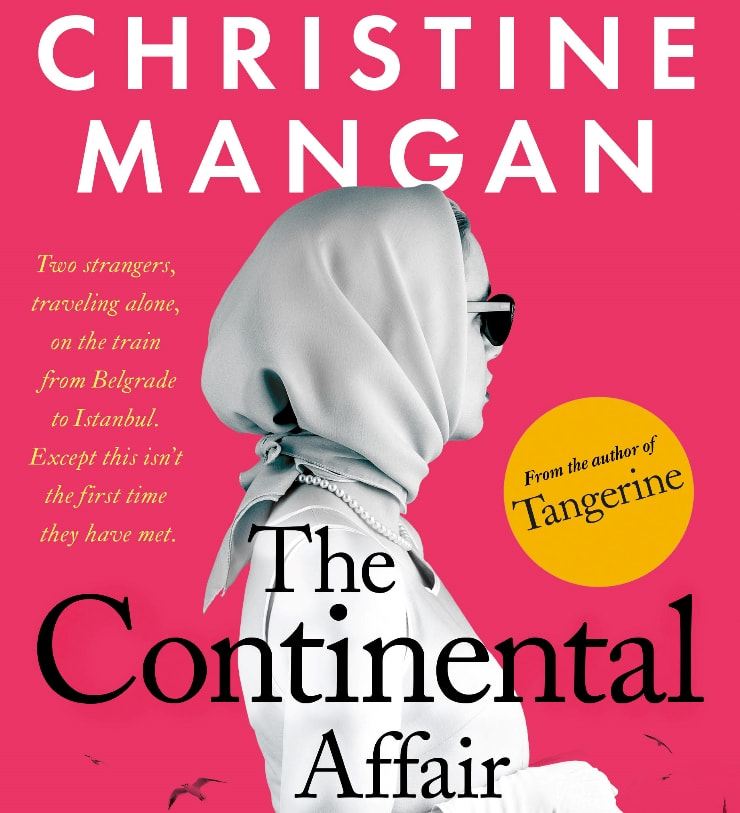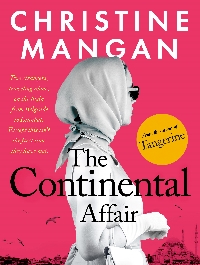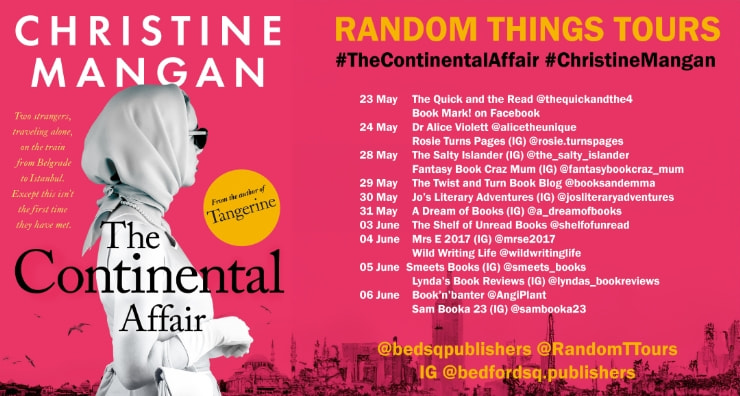Blog tour: The Continental Affair by Christine Mangan

This post is part of a blog tour organised by Random Things Blog Tours. I received a free copy of the book in return for an honest review.
‘Meet Henri and Louise. Two strangers, travelling alone, on the train from Belgrade to Istanbul.
‘Except this isn’t the first time they have met.
‘It’s the 1960s, and Louise is running.
‘From her past in England, from the owners of the money she has stolen – and from Henri, the person who has been sent to collect it.
‘Across the Continent – from Granada to Paris, from Belgrade to Istanbul – Henri follows. He’s desperate to leave behind his own troubles and the memories of his past life as a gendarme in Algeria.
‘But Henri soon realises that Louise is no ordinary traveller.
‘As the train hurtles toward its final destination, Henri and Louise must decide what the future will hold – and whether it involves one another.’

The Continental Affair, by Christine Mangan, follows two characters, Henri and Louise, as the former pursues the latter across 1960s Europe.
Both of them are in a state of flux. Louise has recently escaped a stultifying life in England, using the money she should have been spending on her recently-deceased father’s funeral to see the sights in Spain.
Henri has fled his life as a gendarme in the country of his birth, Algeria, as a result of its War of Independence. He now lives with his aunt in Granada, and earns his keep by assisting his cousins with their shady dealings.
Henri is waiting in position to retrieve a drop-off of money on his cousins’ behalf when he sees it fall into Louise’s possession instead. So begins a game of cat-and-mouse – except Henri quickly becomes reluctant to catch Louise; Louise isn’t as scared or careful as might be expected; and people higher up the food chain are getting impatient as the days stretch into weeks without Henri getting their money back.
Much like Henri, The Continental Affair is largely unhurried, and takes time to luxuriate in the detail. The descriptions of the various locations – from the grandest monument to the tiniest bar – are vivid and precise, and much of the food the characters eat sounds divine.
The novel is steeped in intrigue. The characters’ curiosity about one another is the whole reason the chase becomes so drawn-out. Henri can’t help but perceive that there’s more to Louise than meets the eye, and his pursuit of her ends up being far more about observing her, and trying to figure out what her deal is, than what he’s supposed to be doing.
In turn, Louise is bemused by Henri: there are plenty of opportunities for him to reclaim the money, stealthily or by force, so why does he keep passing them up? She can tell he isn’t a typical bagman, and this means she isn’t scared of him, barely tries to give him the slip, and even misses him when he’s not lurking in her vicinity.
Louise’s foolhardiness is heightened by the novelty of her situation: it seemed to me that her life had changed so abruptly and comprehensively that she had a sense of unreality and disconnection, including from the alarm she should have felt at being pursued. Henri also appears distanced from himself as a result of his U-turn from policeman to criminal.
Another aspect of this mutual dissociation is that both Louise and Henri avoid thinking about their pasts to some extent. What I did get to find out about them intrigued me in turn – I’d have liked to have learned more, and it might have helped me draw more definite conclusions about how much I sympathised with each of these morally-grey characters.
There were a few other mysteries that kept me turning the pages. The obvious ones are the questions of if and when Henri would finally extract the money from Louise, and whether Henri’s pursuer would eventually intervene, and how that would play out. I also got particularly invested in Louise’s ambivalent search for her estranged mother, whose last known address was in Paris.
What’s more, the book switches between scenes from Granada, Paris, and Belgrade, and scenes where the pair are sharing a train compartment from Belgrade to Istanbul – but acting as though they don’t know one another. The event that finally brought them properly face-to-face is alluded to, but it’s a long time before we find out what it actually was.
The Continental Affair is vivid and intriguing.
